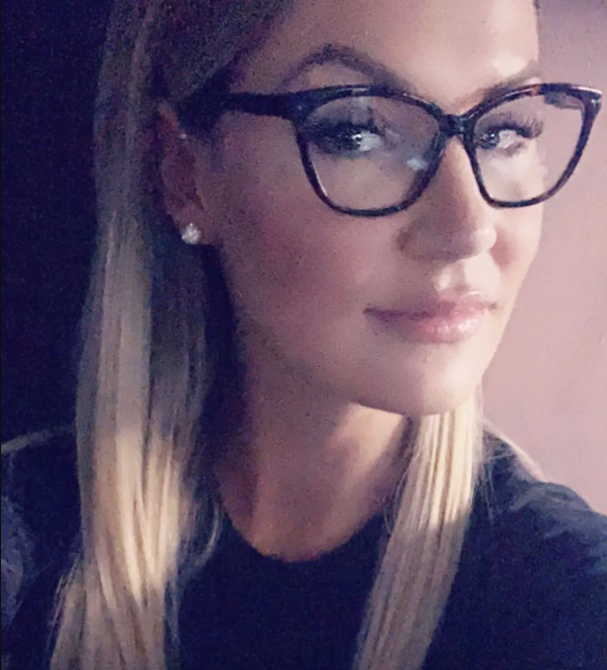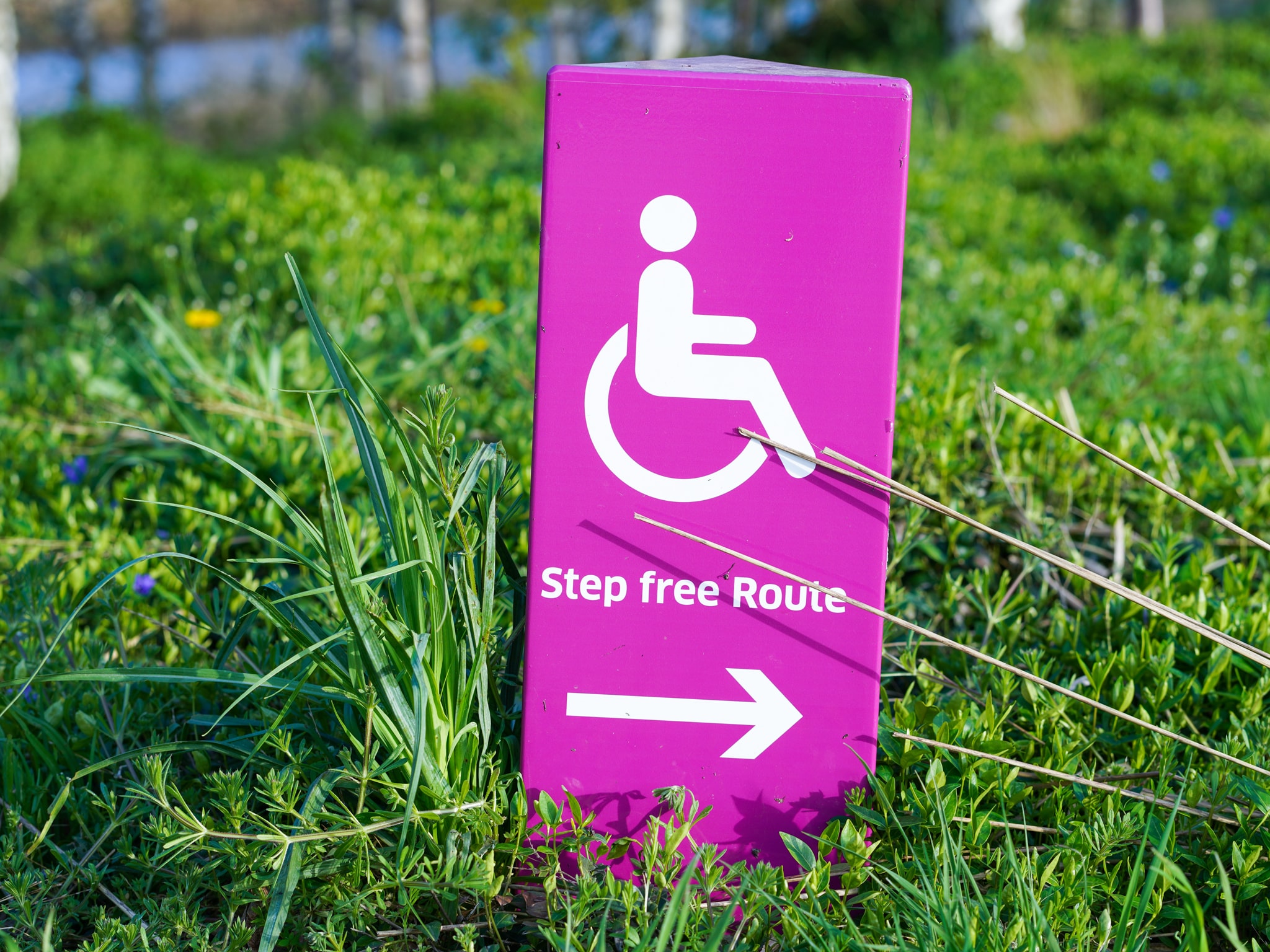Article sponsored by

Need an accommodation? Learn more about disability accommodations in the classroom and the workplace from Melissa Conners, Paralegal.
Meet Melissa

After a life-altering accident, Melissa has successfully pivoted to a new career as a paralegal. Melissa’s acquired disabilities required her to consider what changes she needed to put in place as she pursued her education, and later as she started her career as a paralegal. It’s required adaptability, a flexible approach and a determination to succeed.
Melissa Conners learned not only to navigate the Canadian justice system, but how to manage the physical limitations she sustained in a near-fatal car accident in 2015. As a result of the accident, Melissa sustained a brain injury, developed intense migraines, and experienced a noticeable change in her personality.
Soon after her accident, Melissa enrolled in paralegal studies at Humber College. The program proved to be challenging, as Melissa experienced migraines and difficulty focusing. Melissa sought help through Humber College’s disability centre. “The Disability Centre’s counsellor at Humber was a huge help,” Melissa says. They provided tutors and assistance with registering, and suggested she use a unique pen equipped with technology to record her lectures and read aloud any notes she took during class. These changes worked and Melissa completed her studies successfully.
The ability to record lectures may have helped in the classroom, but not all accommodations can be transferred into a professional environment. In her first job in a legal setting, she quickly realized that she needed different accommodations. “You can’t record meetings in a law office,” Melissa explains. The solution was to take handwritten notes during her meetings, reviewing them immediately afterwards and adding more details.
The migraines have not disappeared. There are still times when they leave her unable to work. Melissa also finds it hard to sit for long periods of time due to a hip injury. Her manager at the law firm was supportive when she asked for accommodations. “My manager is flexible. And from the very beginning, the firm has known about my physical needs. I chose to disclose because I wanted them to trust me. The firm knows that whenever I have to take time away from work, I make up the hours by coming in early or working later. They also know there are times I need to stand up and walk around.”
Do You Need Accommodations?
Asking for accommodations and asking for them early can positively impact your success as both a student and employee. However, there is a big difference between knowing you need an accommodation and knowing which accommodations to ask for. Figuring out what accommodations are right for you can seem like a challenge, especially if you are unfamiliar with the concept. To help you out, let’s start with what counts as an accommodation.
Simply put, accommodations are changes made so you can perform a task to the best of your ability and do the job you were hired for. These changes are made by a school or employer so that you can achieve your full potential with minimal limitations. Often when we think of accommodations, we think of assistive devices like wheelchairs or hearing aids. But many accommodations are simple adjustments to your work environment. Things like:
- Flexible hours
- Frequent stretch breaks
- An ergonomic chair or keyboard
- Assistive technology such as a screen magnifier
Looking at the list helps us understand an important point, accommodations are not just for people who identify as having a disability. Accommodations are for anyone facing a barrier that makes completing necessary tasks, in school or on the job, difficult.
What Are Your Barriers?
Identifying workplace barriers is a key step in getting the accommodations you need. Some barriers seem obvious, like entranceways that are too small for a wheelchair to fit through, while others are harder to identify. A person’s assumptions about what a student with a disability can or cannot do is also a type of barrier. This would be an example of a social barrier; stigma is one of the most common barriers in the workplace. Communication can be a barrier – perhaps you work with someone who doesn’t make eye contact, so you assume they aren’t listening to you. Facial expressions and tempo of speech can be barriers for people with autism.
Barriers are situational and personal. An accommodation that might work for someone else might not work for you. Likewise, a solution that might have worked at a previous job might not be available in a new position. Try making a list of the difficulties you face and book a time to speak to your school’s accessibility office or manager at work to discuss possible solutions.
Asking for an Accommodation
Asking an employer for an accommodation can seem challenging, but here are some steps you can take to make sure you develop a plan that works for both you and your employer.
- Plan out what you are going to say. Be clear, explain what you need and why.
- Practice asking for your accommodation with someone you trust and ask them for their honest feedback.
- Offer solutions and come ready with potential accommodations.
- Be positive and focus on how these accommodations will improve your productivity.
- Be flexible and work with your employer to find a solution that works for both of you.
For more tips and information on how to navigate the job market as a person with a disability, visit https://discoverability.network/.
*Opinions expressed are those of the author, and not necessarily those of Student Life Network or their partners.

 Sponsored
Sponsored


